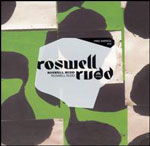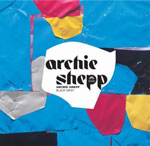Home » Jazz Articles » Multiple Reviews » Roswell Rudd & Archie Shepp: Roswell Rudd & Black Gipsy
Roswell Rudd & Archie Shepp: Roswell Rudd & Black Gipsy
 Roswell Rudd
Roswell Rudd
Roswell Rudd
Verve/Free America
2005 (1965)
Rudd's eponymous session from 1965 features a piano-less two-horn quartet with New York Art Quartet co-founder John Tchicai. Accentuating the altoist's solos, Rudd embellishes free expressions with an unflappable empathy ("Old Stuff ). "Sweet Smells, the second of the trombonist's three originals, is introspective in its opening repeated bass and horn lines, though a real thrust and underlying swing carry the tune.
Dutch bassist Finn Von Eyben and South African drummer Louis Moholo allow the horns to play anything at any given juncture, without a single gratuitous moment. (Eyben, the one unknown to the proceedings, singularly succeeds in playing the double role of the two bassist dynamic Rudd would soon become fond of with either Donald Rafael Garrett or Charlie Haden paired with Lewis Worrell.) Moholo's loping beats, unique timing, and Elvin Jones-influenced polyrhythms push both horns with a subtlety of slowing then speeding up the meter, which takes "Sweet Smells out in an unaccompanied break that will make you want to replay its last thirty seconds.
Closing the session is Monk's ever-familiar "Pannonica, a densely packed three minutes by the group which proves that their spontaneous creations run parallel to a compositional grounding.
 Archie Shepp
Archie Shepp
Black Gipsy
Verve/Free America
2005 (1969)
Of any other reedman, Rudd has had the most extensive history with Archie Shepp. Here on a late '60s Paris session, though, the saxophonist intriguingly fuses a loosely organized informal free jazz jam under a fundamental blues backdrop with the immediately distinguishable Leroy Jenkins (the violist opens and closes the 25-plus minute title track) and eight discernible instrumentalists, including himself, exclusively on soprano.
Earl Freeman (bass), Julio Finn (harmonica), Sunny Murray (drums), Clifford Thornton (trumpet), Noah Howard (alto) and Dave Burrell (piano) sporadically are joined by vocalist Chicago Beau (champ), who offers poetic vocal raps that put the blues element in context, recalling Shepp's own vocal dabblings, while Finn's harmonica touches upon Rahsaan Roland Kirk's blues/jazz experiments with Sonny Boy Williamson. Burrell's surprisingly tame piano lines and Murray's steady drum beat frame the first of two extended pieces.
Most of the experimentation (Jenkins the star voice of the session) happens along the sidelines, unlike the more dynamic three-part followup, "Epitaph of a Small Winner, clocking in also at over twenty minutes, on which Burrell and Murray's playing is more characteristic. Murray throws around multi-rhythmic lines, rising to the foreground as the piece's momentary center, before fading to allow for Burrell's equally momentous solo featuring his distinct avant-ragtime approach.
Roswell Rudd
Tracks: Respects; Old Stuff; Jabulani; Sweet Smells; Pannonica.
Personnel: Louis Moholo: drums; Roswell Rudd: trombone; John Tchicai: alto saxophone; Finn Von Eyben: bass. Recorded 2/11/1965.
Black Gypsy
Tracks: Black Gipsy; Epitaph of a Small Winner: Rio de Janeiro/Casablanca/Chicago; Pitchin' Can.
Personnel: Dave Burrell: piano; Chicago Beauchamp: vocals; Julio Finn: harmonica; Earl Freeman: bass; Noah Howard: alto saxophone; Leroy Jenkins: viola; Sunny Murray: drums; Archie Shepp: soprano saxophone; Clifford Thornton: trumpet. Recorded 11/9/1969.
< Previous
Per Henrik Wallin: The Stockholm Tape...
Comments
Tags
For the Love of Jazz
 All About Jazz has been a pillar of jazz since 1995, championing it as an art form and, more importantly, supporting the musicians who create it. Our enduring commitment has made "AAJ" one of the most culturally important websites of its kind, read by hundreds of thousands of fans, musicians and industry figures every month.
All About Jazz has been a pillar of jazz since 1995, championing it as an art form and, more importantly, supporting the musicians who create it. Our enduring commitment has made "AAJ" one of the most culturally important websites of its kind, read by hundreds of thousands of fans, musicians and industry figures every month.



















